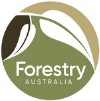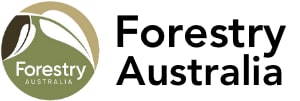
MEDIA RELEASE
Friday, 18 March 2022
Sustainable forestry continues to achieve positive outcomes
International Day of Forests 2022 – “Forests and sustainable production and consumption”
Monday, 21 March
The peak organisation representing over 1,000 professional and scientific forest land managers and growers in Australia is celebrating the critical role of forests in sustainable production and consumption for Australians, and millions of people across the world.
As part of International Day of Forests, Forestry Australia is shining a light on the importance of forest science, and the skilled, experienced forest managers, growers and professionals who drive positive sustainable forest outcomes across the country.
Forestry Australia President Bob Gordon said that, given current environmental, economic and social challenges, including climate change, biodiversity decline and major supply shortages in the forest products we all rely on, it is more important than ever that people understand the role sustainable forestry plays in society.
“Sustainable forestry is key to a prosperous and healthy future for Australian society and the environment. The important work forest scientists and managers do in this space is deserving of celebration, not just today, but every day,” Mr Gordon said.
“Forests are one of Australia’s greatest natural assets, and Australia has the first-class forest management skills, experience and people needed to manage our forests.
“However, as a nation, we must do more. We need to manage this precious resource actively and adaptively across all land tenures including National Parks, State forests and private land to achieve best outcomes now, and into the future.
“To guarantee the future of Australia’s forests, and ensure Australia stands up to meet our global responsibility in sustainable production, consumption and forest health we need more investment in forest science and forest managers. Passive approaches to our forests will not help us secure the future of our forests.
“A key path to achieving improvements in forest health and biodiversity lies in working with Indigenous Australians, who have looked after the land for tens of thousands of years. We must respect and embrace the knowledge and experience of Traditional Owners and participate in two-way capacity building to help manage our forests sustainably, together.
Forestry Australia Vice President Dr Michelle Freeman said investing in specialist forest and land management would be key to addressing the impacts of climate change on forests.
“As climate change has an increasing impact on our forests, we need a greater focus on year-round land management and bushfire prevention activities to help our forests to adapt. To do this, we need to ensure we continue to invest in human capital and support those equipped with the required specialised skill set and knowledge,” she said.
David Rowlinson, Planet Ark Environmental Foundation’s Make it Wood Campaign Manager, said Make it Wood supported Australian forestry and the use of wood in construction.
“The Australian forestry sector is one of the most highly regulated and well regarded in the world,” Mr Rowlinson said.
“Well over 95 per cent of Australian plantations and state forests are certified, and the significant majority of the wood used in the construction sector has chain-of-custody certification. Certification also ensures that when a tree is harvested another is planted in its place.
Mr Rowlinson said using wood as a construction material helped to mitigate climate change.
“Wood is the only major building material that is renewable. An Australian frame and truss house will use about 12 cubic metres of radiata pine in its structure. This will be regrown in Australian plantations in less than a minute.
“As trees grow they absorb carbon dioxide. Consequently about half of the dry weight of wood is carbon – so-called biogenic carbon – which is stored for as long as the building exists.
“Timber consumes minimal energy in its production – so-called embodied carbon – so it can be used as a low-emission substitute for materials that require larger amounts of fossil fuels to be produced, such as concrete and steel.”
Bonnie Galbraith, Timberlands Pacific Harvest Manager said developments in building techniques continued to change perceptions about the value of sustainably sourced timbers in construction projects.
“Working in forestry is a rewarding and challenging multidisciplinary career, where there is always something new to learn,” Ms Galbraith said.
“Well managed forests provide climate solutions by capturing carbon that can then be used in building and construction projects. So much interesting work is being done on novel building techniques with timber and sawing techniques that make better use of the existing timber in our forests.
Billie-Jo Brown, Forestry Corporation of New South Wales Health, Safety & Wellbeing Business Partner, said the benefits offered by forestry made working within the sector an exciting challenge.
“In my 23 years in forestry, every day has presented a different and exciting challenge,” Ms Brown said.
“I am extremely passionate about the forests I get to work in, the people I get to work with and the timber communities I live in.
“I am proud to play a part in sustainable forest management within both the native and planted forests of NSW and get a thrill from seeing others benefit from employment, cultural connection, recreation and education opportunities.”
Gary Morgan AM AFSM, Chair of Forestry Australia’s Forest Fire Management Committee and Chair of the Victorian Government’s Ministerial Advisory Committee for Bushfire Risk Management, said considered use of fire as a forest management tool could greatly benefit Australia’s land management practices.
“I am passionate about seeing improvements in management of Australia’s forests through the thoughtful use of fire under prescriptions, specifically designed to conserve and enhance our unique ecosystem,” Mr Morgan said.
“I believe sensible management will also reduce government expenditure on forest fire suppression, allow our vegetative ecosystems to cope with the impacts of climate change and improve Australia’s recreational experiences for Australians and tourists.”
Rayna Barr, Midway Logistics Admin and Compliance Manager in Western Australia, said ensuring forests could be enjoyed by generations to come was an important outcome of active forest management.
“I have had a varied career in forestry, from native forest management in New Zealand, to pine log export in Western Australia and Safety and Environmental Compliance with Midway.
“Throughout this career I have learned that active management of forests provides us with an opportunity to improve forest health, ensuring that my children will be able to continue to use them and enjoy them in the future, just as we enjoy them now as a family.
“Managing forests to ensure they are resilient to fire, drought and disease, and open and available for the community to enjoy should be everyone’s goal.”
The United Nations General Assembly proclaimed 21 March the International Day of Forests (IDF) in 2012.
The Day celebrates and raises awareness of the importance of all types of forests, with this year’s theme “Forests and sustainable production and consumption”.
Photos to download for media use, below:
Billie-Jo Brown
Bonnie Galbraith
David Rowlinson
Gary Morgan
Rayna Barr
Media contact:
David Abbott
Font PR
0400 446 736
davida@fontpr.com.au

